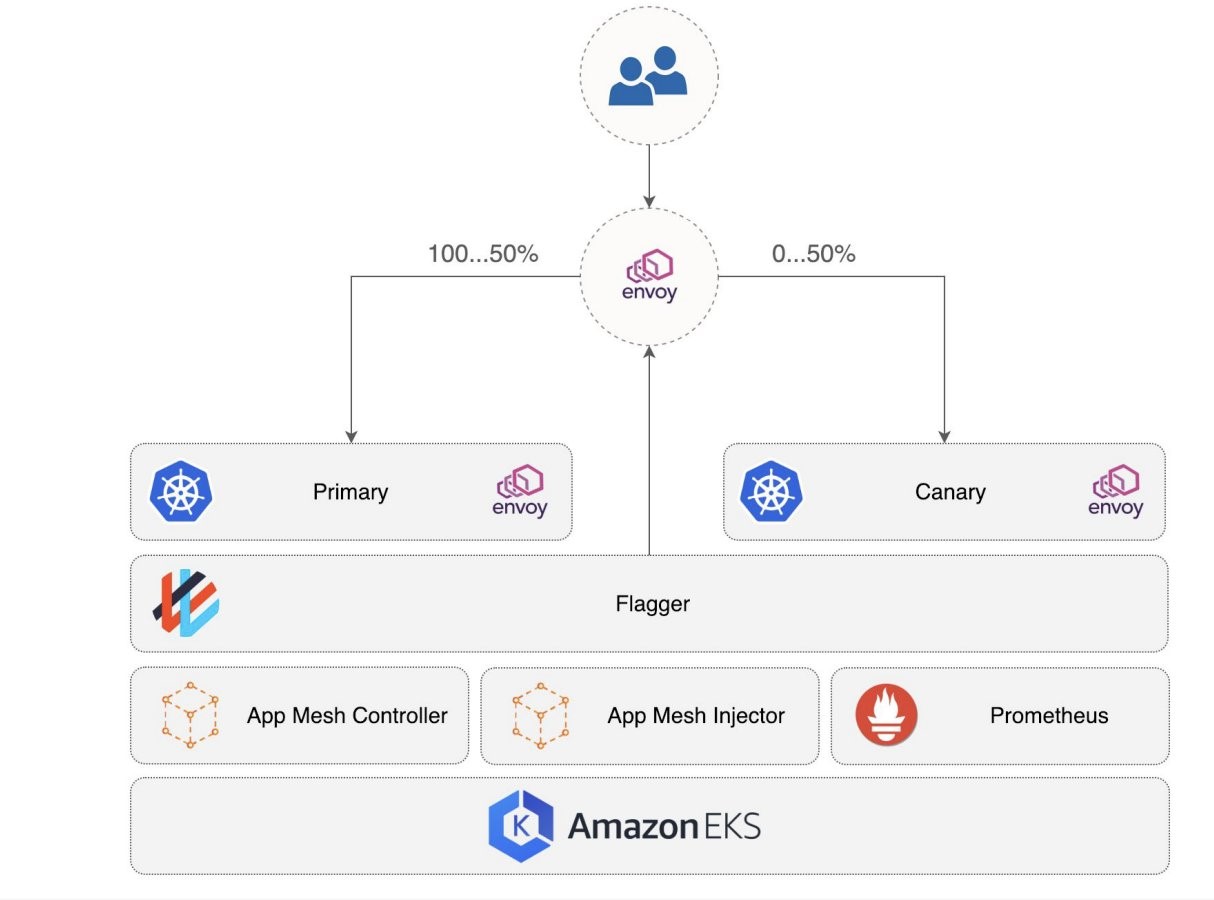Containers
Tag: Amazon EKS
Three things to consider when implementing Mutual TLS with AWS App Mesh
NOTICE: October 04, 2024 – This post no longer reflects the best guidance for configuring a service mesh with Amazon ECS and Amazon EKS, and its examples no longer work as shown. For workloads running on Amazon ECS, please refer to newer content on Amazon ECS Service Connect, and for workloads running on Amazon EKS, […]
Diving into IAM Roles for Service Accounts
A common challenge architects face when designing a Kubernetes solution on AWS is how to grant containerized workload permissions to access an AWS service or resource. AWS Identity and Access Management (IAM) provides fine-grained access control where you can specify who can access which AWS service or resources, ensuring the principle of least privilege. The challenge […]
Continuous Delivery of Amazon EKS Clusters Using AWS CDK and CDK Pipelines
This blog is no longer up to date and we recommend reviewing the Amazon EKS Blueprints for CDK Pipeline SDK module which makes it easier to create infrastructure Continuous Delivery pipelines via AWS CodePipeline. Customers are looking for ways to automate the deployment of their Amazon EKS clusters across different versions, environments, accounts, and Regions. […]
Protect Kubernetes workloads from Apache Log4j vulnerabilities
Log4j is among the most popular and highly used logging frameworks in Java-based applications. On December 9, 2021, the world became aware of zero-day vulnerabilities CVE-2021-44228 and CVE-2021-45105 affecting the popular Apache package. Any attacker who can control log messages or log message parameters can execute arbitrary code loaded from malicious LDAP servers when message […]
Cloud Native CI/CD with Tekton and ArgoCD on AWS
Introduction With the ongoing popularity and adoption of container orchestrators such as Kubernetes, more and more cloud-native applications are built on top of it. Besides business applications, companies are migrating their infrastructure-related components such as CI/CD systems as well. But are those systems ready for such modern platforms? The answer depends. Clearly, most of the […]
GitOps model for provisioning and bootstrapping Amazon EKS clusters using Crossplane and Flux
In an earlier blog (Part 1 of the series), I discussed the adoption of the GitOps model as an efficient strategy for provisioning cloud provider-specific managed resources, such as, for example, Amazon S3 bucket and Amazon RDS instance, that application workloads depend on. The blog presented the details of implementing a use case where an Amazon […]
Amazon EKS launches IPv6 support
The ongoing growth of the internet, particularly in the fields of mobile applications, IoT, and application modernization, has led to an industry-wide move to IPv6. With 128 bits of address space, IPv6 can provide 340 undecillion IP addresses, compared to 4.3 billion IPv4 addresses. Over the last several years, Amazon Web Services (AWS) has added […]
Progressive Delivery using AWS App Mesh and Flagger
NOTICE: October 04, 2024 – This post no longer reflects the best guidance for configuring a service mesh with Amazon EKS and its examples no longer work as shown. Please refer to newer content on Amazon VPC Lattice. ——– In this blog, we will cover how to implement progressive delivery using AWS App Mesh and […]
Chaos Engineering with LitmusChaos on Amazon EKS
Introduction Organizations are embracing microservices-based architectures by refactoring large monolith applications into smaller, independent, and loosely coupled services. These independent services are faster to deploy and scale, enabling organizations to innovate and deliver faster. However, as the application grows, these microservices present their own challenges. For example, as you deploy tens or hundreds or thousands […]
Cost savings by customizing metrics sent by Container Insights in Amazon EKS
AWS Distro for OpenTelemetry (ADOT) is an AWS-provided distribution of the OpenTelemetry project. The ADOT Collector receives and exports data from multiple sources and destinations. Amazon CloudWatch Container Insights now supports ADOT for Amazon Elastic Kubernetes Service (Amazon EKS) and Amazon Elastic Container Service (Amazon ECS). This will enable customers to perform advanced configurations, such as customizing metrics […]








